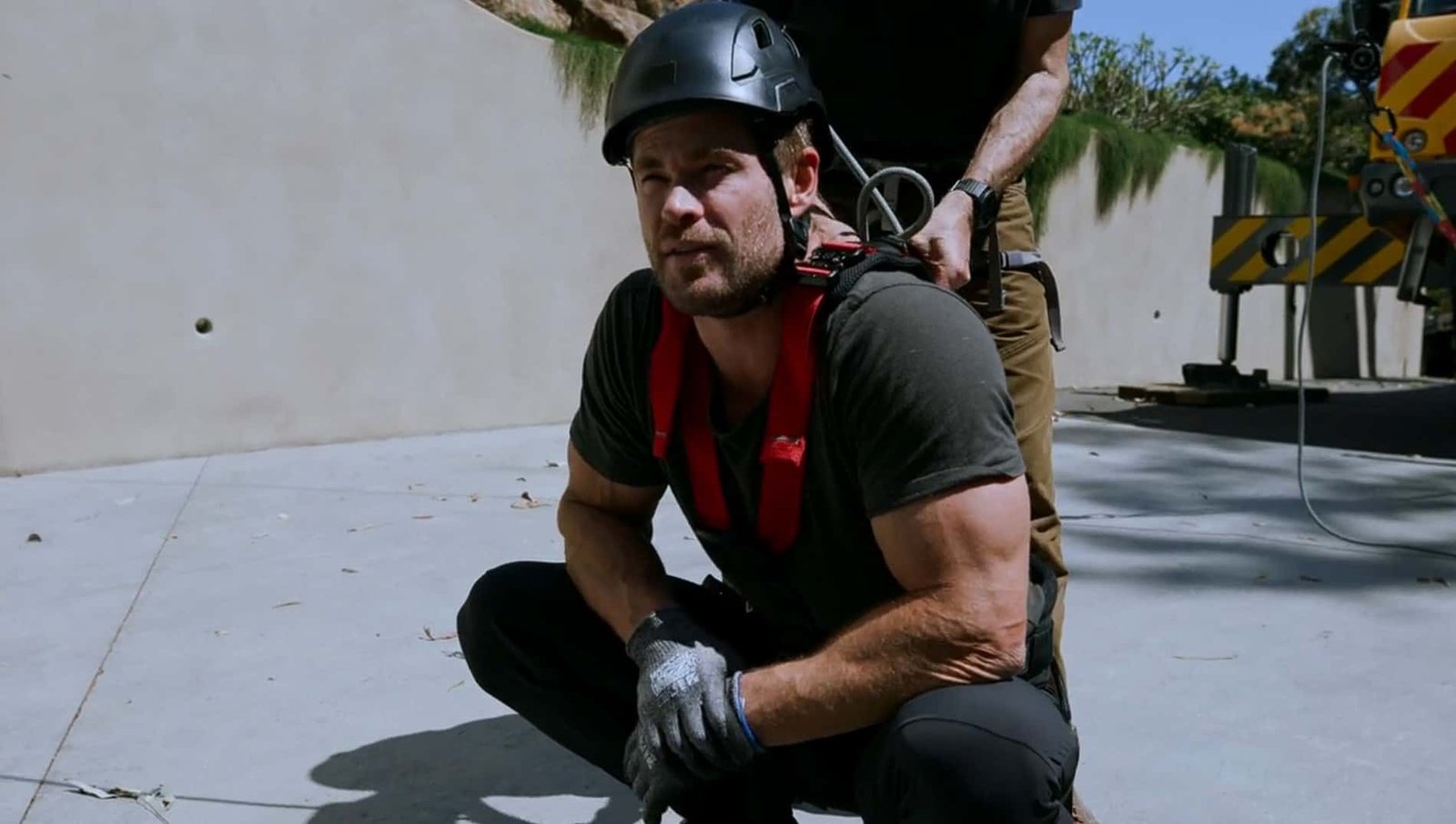In Limitless Episode 4, titled “Strength,” Chris Hemsworth dives into the connection between physical strength and mental well-being, exploring how building and maintaining strength throughout life can serve as a foundation for both physical health and emotional resilience. While strength is often viewed purely through a physical lens, the episode reveals how it plays a crucial role in promoting mental health, reducing anxiety, enhancing self-confidence, and improving overall quality of life. Through rigorous training and confronting his own limits, Hemsworth learns that how to strength train is as much about mental fortitude and balance as it is about muscle.
Episode Overview
The episode chronicles Hemsworth’s journey to build physical strength and stability in preparation for a daunting physical feat: climbing a 100-foot rope suspended over a canyon. This high-stakes challenge pushes him beyond his physical comfort zone, requiring intense focus, self-discipline, and courage. As Hemsworth prepares for the climb, he works closely with experts who show him how developing strength is not just about lifting weights, but about fortifying the mind, reducing stress, and cultivating resilience to face both physical and emotional challenges.

Limitless with Chris Hemsworth National Geographic for Disney+. Chris Hemsworth’s journey in Limitless Episode 4 demonstrates how mental health and physical strength are deeply connected. Throughout the episode, strength training benefits for mental health are highlighted, showing how fitness can build emotional resilience through exercise. With techniques like breathwork for stress relief and visualization for performance, Hemsworth explores the mind-body connection in fitness. These methods, combined with mindfulness in fitness routines, illustrate how strength training as self-care can enhance both physical and mental health, fostering resilience and emotional strength.
Key Themes Explored
1. The Connection Between Strength and Mental Health
Research shows that strength training has significant mental health benefits, including reducing symptoms of depression and anxiety. Hemsworth learns that the process of building physical strength can have a transformative effect on the mind:
- Endorphin Release: Engaging in strength-building exercises triggers the release of endorphins, the body’s natural “feel-good” chemicals, which can elevate mood and reduce stress.
- Improved Self-Efficacy: As Hemsworth progresses through increasingly difficult training sessions, he experiences a boost in self-confidence and self-efficacy—critical components in developing resilience and combating anxiety.
- Mind-Muscle Connection: The mental focus required to execute complex movements helps Hemsworth stay grounded in the present, making strength training a form of mindfulness in itself.
This physical-mental connection is particularly relevant in mental health contexts. Strength training empowers individuals to set and achieve tangible goals, fostering a sense of accomplishment and control, which are key for maintaining positive mental health.
2. Strength as a Metaphor for Overcoming Mental Barriers
The episode reframes physical strength as a metaphor for overcoming life’s mental and emotional barriers. Hemsworth is no stranger to physically demanding roles, but this episode requires him to tap into a deeper mental reserve. Preparing for the final challenge forces him to confront fear, self-doubt, and the mental strain of pushing beyond his perceived limits.
- Facing Fear Head-On: The daunting challenge of scaling a 100-foot rope over a canyon is a test of his courage and mental resolve. As Hemsworth grapples with the fear of heights and the physical exhaustion of the climb, he learns to control his breathing, stay present, and silence the negative thoughts in his head.
- Building Mental Resilience: Just as muscles grow stronger with resistance, the mind becomes more resilient through adversity. Hemsworth’s training regimen serves as a practice in perseverance, reminding us that facing discomfort is essential for growth—both physically and emotionally.
This connection is critical for those dealing with anxiety or depression, as learning to confront and manage discomfort is a core component of mental health therapy. By embracing physical challenges, Hemsworth demonstrates how strength training can serve as a constructive outlet for managing stress and building psychological resilience.
3. Mindfulness and Strength Training
Throughout the episode, Hemsworth works closely with experts who emphasize the role of mindfulness in building strength. Techniques like visualization, controlled breathing, and staying grounded in the moment are incorporated into his routine, revealing the synergy between mental focus and physical performance.
- Breathwork and Emotional Regulation: Hemsworth uses breathwork techniques to regulate his emotions and stay calm under pressure. The episode highlights how focusing on the breath can lower stress levels, reduce anxiety, and enhance overall mental clarity.
- Visualization for Success: Before attempting the final climb, Hemsworth visualizes each step of the ascent. This practice, rooted in sports psychology, helps improve focus and prepares the mind to face high-pressure situations calmly.
By integrating mindfulness into his strength training, Hemsworth reinforces the idea that mental and physical strength are deeply intertwined. Practicing mindfulness helps cultivate a sense of control and awareness, making it easier to face both external challenges and internal mental battles.
4. Strength and Emotional Well-Being
Building physical strength is not just about the body—it’s about improving emotional well-being as well. The episode highlights the emotional release that comes with pushing through a tough workout, and how strength training can serve as a powerful tool for managing emotions.
- Stress Relief and Emotional Resilience: Strength training provides a healthy outlet for channeling frustration, anxiety, and stress. The repetitive, structured nature of lifting weights can have a calming effect, providing a sense of routine and stability.
- Strength Training as Self-Care: For Hemsworth, strength training becomes a form of self-care, a dedicated time to focus inward and cultivate both physical and emotional health.
This is particularly important for those dealing with stress, burnout, or low self-esteem. Building strength can foster a deeper sense of self-worth and contribute to a more positive self-image, counteracting negative thought patterns.
5. The Final Challenge: A Test of Physical and Mental Strength
The episode culminates in Hemsworth’s attempt to climb a 100-foot rope over a canyon—a test of all the strength, balance, and mental resilience he’s built. This challenge symbolizes the convergence of physical and mental strength:
- Focus Under Pressure: Dangling over a canyon with only his grip and core stability to rely on, Hemsworth must maintain unwavering focus and composure, controlling his fear and fatigue.
- Resilience Through Adversity: As the climb progresses, Hemsworth faces physical exhaustion and mental fatigue. The key to success lies not just in his physical preparation, but in his ability to stay mentally strong and push through discomfort.
The final challenge serves as a metaphor for mental health struggles, demonstrating that real strength is about confronting fear and uncertainty, pushing through when it’s hard, and trusting in your own resilience.

By embracing the strength training benefits for mental health, individuals can harness emotional resilience through exercise and learn to confront discomfort with grace. Hemsworth’s journey underscores that mental health and physical strength go hand-in-hand, offering a holistic approach to well-being. This episode also emphasizes the power of breathwork for stress relief and the role of visualization for performance in achieving peak physical and mental performance. As he navigates this challenging path, Hemsworth embodies the spirit of mindfulness in fitness routines, making strength training as self-care a key element in developing resilience and emotional strength.
Key Takeaways for Mental Health
- Strength Is Holistic: True strength is not just physical—it’s mental and emotional. Strength training offers a pathway to building resilience and improving mental health through structured challenges that engage both the body and mind.
- Embracing Discomfort Leads to Growth: Whether it’s lifting heavier weights or managing anxiety, confronting discomfort is a prerequisite for growth. The discomfort we face during strength training mirrors the discomfort we feel when addressing mental health challenges, teaching us to become more resilient.
- Physical Activity Enhances Mood and Reduces Stress: Regular strength training releases endorphins, regulates stress hormones, and provides a sense of accomplishment, all of which are powerful tools for maintaining mental health.
- Mind-Body Connection: Incorporating mindfulness techniques into physical training, like breathwork and visualization, can enhance both physical performance and emotional well-being.
Final Reflection
In Limitless Episode 4, Chris Hemsworth discovers that strength goes beyond physical power. It’s about developing the mental fortitude to face life’s toughest challenges, overcoming fear, and cultivating resilience. Through his journey, he shows us that building strength isn’t just about muscle—it’s about empowering the mind, building emotional resilience, and ultimately fostering a healthier, more balanced approach to well-being.
Looking to build both physical and mental strength? Discover how to enhance resilience and emotional well-being through personalized strength training programs. Start your journey today with East Coast Telepsychiatry!
